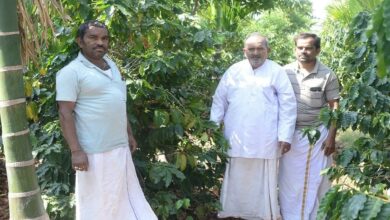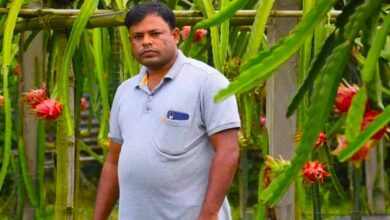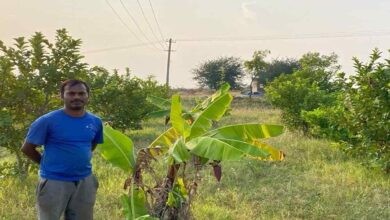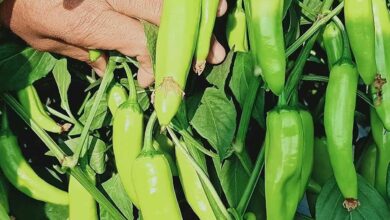Success Story: This teacher from Assam started organic vanilla farming and achieved great success
Success Story: One of the world’s most valuable spices, vanilla is often used in desserts such as cakes and ice cream and is appreciated for its rich, sweet scent. Camarina Rabha, a high school teacher from Goalpara, Assam, decided to take an unexpected turn into vanilla farming after seeing its enormous economic value. What started with a single plant in Meghalaya has become a thriving business, showing how determination and perseverance can turn even the most modest ideas into successful endeavors.

Innovative methods and the difficulty of hand pollination
Camarina has faced difficulties along the way. Melipona bees, which are becoming less common as a result of climate change, are naturally necessary for the pollination of vanilla plants. As a result, manual pollination becomes crucial. Camarina starts her day at 4 a.m. to complete this laborious process, even though she is a full-time teacher. “The work is tiring,” she admits, “but it feels extremely satisfying when I see the plants bloom.” She also offers important tips for high-quality produce: Only five to six of a bunch’s twelve buds should be pollinated to produce grade A beans, which are larger than seven inches. There are three grades of vanilla beans: A (premium), B (up to 6 inches), and C (less than 6 inches). The highest market price is obtained for A-grade beans.
Organic Practices and Soil Requirements
According to Camarina, highland soils that are rich in organic matter and have good drainage are ideal for growing vanilla. Avoid sites that are wet, as they encourage fungal growth in the lower nodes of the plant. For best propagation, she suggests using cuttings with at least two nodes.
As part of her dedication to sustainability, Camarina fertilizes her land with coco peat and leftovers from her farm and kitchen. Since vanilla is a climbing plant, she uses nets and PVC rods covered in coconut husk for support structures. Shade nets are put up over the entire crop to protect it from inclement weather. To promote healthy growth, she also insists on planting before the onset of the rainy season.
Market constraints remain an issue
Despite her horticultural success, Camarina still has to overcome several marketing constraints. Infrastructure and local demand are minimal in Assam, where vanilla cultivation is still in its infancy. Mature vanilla beans sell for between Rs 40,000 and Rs 50,000 per kg in the international market, while Camarina gets only Rs 20,000. The price of green beans sent to Meghalaya is very low, ranging from Rs 1,000 to Rs 1,800 per kg. Bridging these gaps in the market is essential to attract more farmers to grow vanilla.
A successful venture for working women and housewives
According to Camarina, women looking for a flexible but lucrative career will particularly benefit from a career in vanilla farming. Once established, a plant can provide 2 kg of beans and over 1,000 cuttings every year, starting from the third year. With a plant life of over 20 years, the long-term benefits are significant. She adds that the cuttings can be sold for between Rs 150 and Rs 200 per cutting, generating additional revenue.
“With a little perseverance and careful planning, vanilla farming can become a lucrative endeavor for both working women and stay-at-home moms.” Camarina’s message is clear. You can handle it just like me, in addition to being a teacher.
An encouraging example of creativity and perseverance is Camarina Rabha’s journey from a high school classroom to the lush green lanes of her vanilla plantation. Besides showcasing the untapped potential of this valuable commodity in Assam, their achievement in growing organic vanilla creates new opportunities for women seeking a self-reliant, sustainable life. With the right information, incentives and access to markets, vanilla cultivation has the potential to revolutionize the agricultural landscape of Northeast India.





